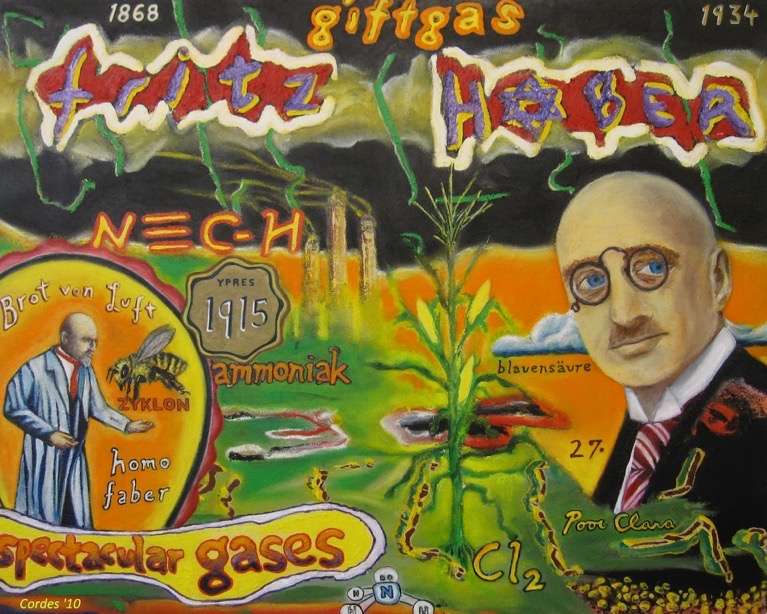Tragic Figure of the 20th Century



While he was not quite an organic chemist, it is almost impossible to ignore the curious case of Fritz Haber (1868-1934) when considering the personalities of modern European chemistry. Fritz Haber was, like Hofmann, a German Jew trying to make it in a society that still only just tolerated Jews. Despite his conversion to Christianity, he would remain forever, in the eyes of his hateful tormenters – a Jew. What makes Fritz Haber so tragic, though, is that despite all of the obvious evidence that he would never be fully accepted as a member of the German intellectual establishment (Einstein tried to warn him), he nevertheless continued working in service to his “fatherland” up until the day he was unceremoniously kicked out of his Berlin laboratory shortly before his exile to Switzerland. Ironically, few others could claim such devotion to their country as Haber could to Germany. He had won the Nobel Prize in 1918 for his astonishingly important work creating a synthesis of ammonia from nitrogen and hydrogen gases. This chemistry, the Haber-Bosch process, is still used today as the principal method for producing the high energy nitrogen compounds used in everything from fertilizer to high explosives. Indeed, at the time, it was said that Haber had found the way to make, “bread from air!” In the First World War, Haber went further in service to his country, making use of his expertise in gas chemistry to engineer the first use of poison chlorine gas against the French at the Battle of Ypres. When his pacifist wife committed suicide shortly after, Haber skipped the funeral and was back at the front lines the next day!

An ironic and paradoxical man if there ever was one, Fritz Haber never seems to have been very aware of the conflicts apparent in his undertakings and achievements: creating a method to help feed the world, while at the same time making explosives and armaments cheaply available, fighting in defense of his homeland while at the same time ushering in a new and ghastly age of poison gas warfare. And the ironies do not stop there! After the First World War, Haber worked on numerous problems, one of which was the creation of several chemical pesticides. One of these, commonly called Zyklon B, ended up as the Nazi’s poison of choice for use in the gas chambers. Sadly, in addition to the millions of other victims of the Nazis, many of Haber’s own relatives ended up shipped to concentration camps where they, too, most likely succumbed to a fate assisted by Haber’s work. Haber was pushed out his research institute in Berlin shortly after the the Nazis took power in 1933 and died shortly after in Switzerland. The tragic figure of the twentieth century!